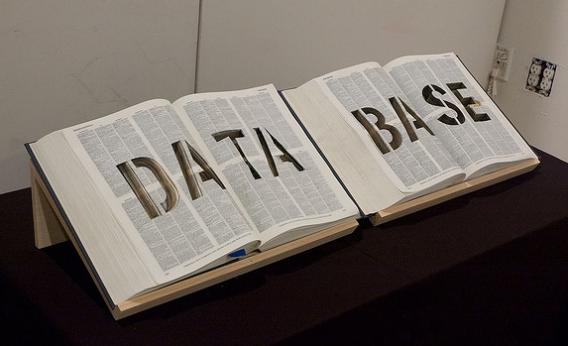Which Words Do Slate Readers Hate?
Yesterday, in a piece I wrote for Slate, experts specializing in linguistics, psychology, and advertising shared their thoughts on the phenomenon of word aversion—seemingly inoffensive words that drive some people batty and lead others to reach for the Pepto. The article discussed commonly mentioned gross-out words such as moist and panties, but it also noted that individuals have reported aversions to extremely mundane words—such as luggage and hardscrabble—that tend to perplex those looking to get a handle on what’s behind word aversion. At the end of the piece, I asked readers to post comments relating their own experiences with word aversion. They did not disappoint.
Hundreds of commenters chimed in to report aversions keyed to words extending from apple to zesty. Among the others mentioned: foyer, salad, hose, lapel, plethora, funicular, groin, nostril, and munch. Several commenters noted an aversion to belly. Additional repeating themes included 1) using known word aversion weaknesses to torment and tease siblings, spouses, and other family members, and 2) an uncomfortable commenting posture that amounted to, as PaisleyScribe put it, “shuddering as I type” the offending word.
Take pity on commenter LRKnispel, who cannot stand the word goiter. “It creeps me out, and my mom will just say it sometimes to bother me.” For kelwhy, the word humanoid results in “literal cold chills,” so much so that kelwhy “hated even typing it.” But kelwhy did type that word, which is more than can be said for ernestp with respect to the word fart: “As silly as it is, I find that word so repulsive. I can’t even bring myself to type it. Seriously.”
While it may be possible to refrain from typing certain words, avoiding them in other settings can prove difficult. Eldorito, who hates the word discharge, recalled the time when everyday telecommunication presented a challenge. “I had an old Nokia phone that would say discharging when it died. Nasty.” Commenter YesIndeed, meanwhile, might have been better off clicking on some other story. The word aversion article, YesIndeed noted, “contained the words dearth and foibles, two words I have an aversion to.”
On a positive note, reader comments on the story may have broken fresh ground and created a new word aversion subcategory: names! “The word that bothers me to no end is just a normal name: David,” noted commenter JuJuBee. “Can’t stand it even though I can’t think of any David I’ve known who could’ve caused such an aversion.” That’s an unfortunate development to be sure, but it’s nothing when compared to the reader who is grossed out by the name Melissa. The explanation on that one: “It always reminded me of blisters.”
Stay tuned for my “Names We Hate” essay, coming soon. Maybe.
In the meantime, I will bid you adieu by ceding the floor to the “Why Do We Hate Certain Words?” commenting co-MVPs. First up is ochnas2, who wins the prize for best description of what it’s like to experience an aversion to the word gorgeous. “I have hated this word as long as I [can] remember. It is a visceral reaction. I wouldn’t say it makes me nauseous, but hearing it gives me the same creepy feeling you would get when you first notice a spider crawling on you that has obviously been there a while.”
Yikes.
And, finally, there’s fsutrill, a “writer/editor/proofreader and bilingual” who maintains a list of aversive words that includes pus, spittle, and putrid. But beyond all others, fsutrill cannot stand the word cigarette, a word that seems so deeply repulsive that fsutrill has never once spoken it aloud. “I’m 43,” fsutrill notes. “Crazy, huh?”
In the two-minute clip below, Today discusses the Slate piece on word aversion, and shares the words their viewers hate.
Visit NBCNews.com for breaking news, world news, and news about the economy

